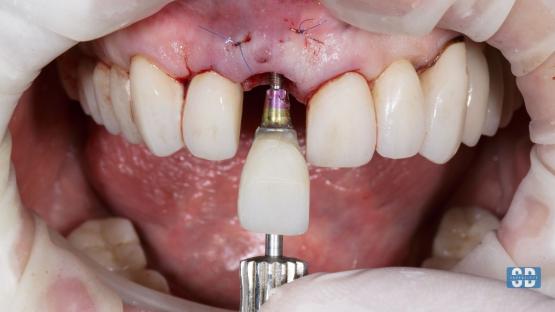Losing a tooth doesn’t have to be a big setback, thanks to modern dental procedures like single tooth implants.A single tooth implant gives you a sturdy artificial tooth root on which to place a crown that is shaped and shaded to match your natural teeth. The result is a seamless smile, as if you never lost a tooth.
But how long do these last? Will you need to replace your implant? And can you extend its lifespan? This guide to single tooth implant lifespan will answer these questions and highlight some factors that impact longevity when getting dental implants in Hinesvile, GA .
Single tooth dental implants: estimated longevity
Dental implants are designed to last for a long time since they fuse with your jawbone.The post is made of titanium, which is incredibly strong and biocompatible. The crown or other dental device on top of the post may not last as long. However, it can still last 15 to 20 years. A single tooth implant can be an ideal tooth replacement option that looks natural and lasts a long time.
Factors that impact longevity
Here are some things that affect how long your implants and accompanying crown could last:
Oral hygiene habits
Implants won’t decay like natural teeth. But surrounding teeth and gums decay or get infected. Your jawbone can still deteriorate if these aren’t taken care of well and other teeth fall out.That’s why oral hygiene still matters for implants:
- Brush at least twice daily with fluoride toothpaste and a soft-bristled brush
- Floss once daily to remove debris from between your teeth
- Rinse once daily to remineralize teeth and clean out bacteria
Diet
Diet matters for two reasons.First, some foods can wear down or damage the crown portion of your implant, especially if it’s a molar implant that bears more biting and chewing forces. Cut down on hard and sticky foods to keep them in good shape.Similarly, sugary and acidic foods could wear at the enamel and speed up bacteria growth. Both of these could irritate gums and lead to infection.
The second reason is that your diet can have a positive impact on implants during the healing process. A diet rich in protein and nutrients during recovery speeds along healing and reduces the risk something goes wrong with the implant.
Tooth grinding/bruxism
Grinding your teeth wears down the teeth and your implant. Your implant post might be fine, but the crown could wear, chip, and crack. Your gums can also recede with untreated tooth grinding.
Speak with your dentist about custom night guards. One of these puts a barrier between your upper and lower teeth. When you clench your jaw at night, your teeth and implants don’t grind against each other.
Dental checkups
Dental checkups are already crucial for keeping your mouth healthy. Once you have an implant, however, the checkup gives them a chance to check on it.They can check and clean the surrounding area while looking for early signs of trouble, like wear and tear or inflammation.The earlier they catch these, the easier it is to stop further damage and avoid costly, stressful fixes.Plus, your dentist can give you more advice on caring for the implant and, in some cases, specialized products (like toothpaste or brushes) to use with the implant.
Lifestyle factors
Your lifestyle can change your implant’s lifespan, even with good oral health habits. Here are a few examples:
- Smoking/tobacco use: These restrict blood flow to the gums, slowing healing and increasing failure risk.
- Contact sports/activities: Football, boxing, and other contact sports could damage any of your teeth, including your implant. Wearing proper protective gear, such as helmets and mouthguards, can reduce risks.
- Chronic stress: Stress might make you clench your jaw unthinkingly throughout the day, accelerating wear on the implant.
The bottom line
Single tooth implants are one of the longest-lasting smile restorations. The implant can last a lifetime, while the crown could last for decades. Such a long lifespan can make the higher upfront investment pay off in the long run.Be sure to take good care of your implants. Keep up oral hygiene habits, eat the right foods, and visit your dentist regularly.If you’re thinking about implants, speak with your dentist to find out if it’s the right solution for you.







